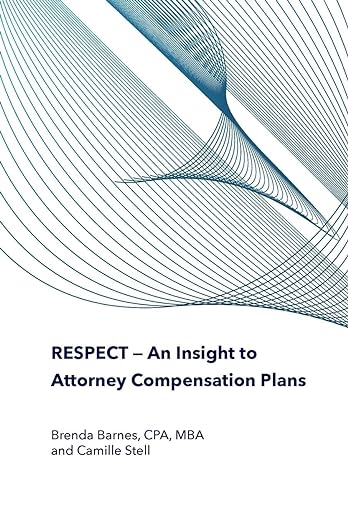
The end of the year is barreling toward us — are you ready? If not, here are a few tips for tidying up your practice and doing a comprehensive financial review.
Financial Management for Your Firm
For many lawyers, financial management is the business area of practicing law that provides the most heartburn. It’s completely understandable. But it is to your detriment when you don’t understand the financial fundamentals better.
Hire financial advisors to aid you in better understanding your business.
Too many lawyers delegate responsibility to employees who have not been properly trained.
Be aware of potential landmines.
A major red flag is having one employee who has all financial responsibility: check writing, bookkeeping, trust accounting and reconciliation, as well as maintaining all communication with your financial partners and bank. Checks and balances are key. Often, there is no ill intent on the part of the employee, just a lack of knowledge.
If, as the owner, you do not understand the process, you will have a hard time finding the flaws in your system or properly supervising.
Analyze your cash flow.
Brenda Barnes, owner of B2 Management & Consulting, has this to say about law firm finance: “A good system of cash flow management can spell the difference between a successful business and a failed one. You need positive future cash flow to meet your debt commitments. Strong cash flow management also provides the ability to invest in growth. Getting to a position of excess cash flow helps your company operate in a strategic, proactive way, and can help keep you from operating on the defensive. Year-end is an excellent time to document your cash flow, prepare a cash flow budget, and look for areas of improvement.”
What Should a Law Firm Financial Review Include? A Year-End Checklist
Barnes provides an important checklist of items for law firms to review for year-end and to strategically maximize profitability in 2022.
- Review realization rates and compare them with prior years.
- Review client profitability to assist with determining billing rate adjustments.
- Review attorney and paralegal billing rates to determine whether an adjustment is necessary. If so, establish a communication protocol with your clients to discuss.
- Set timekeeper budgets including billable hours, collections and originations.
- Review your general ledger and correct coding adjustments as necessary.
- Review your profit and loss report. Where do you stand? If you have a larger-than-expected profit, are there any major purchases (investments in your firm) you should make now that can be depreciated? Make sure you have the cash. Talk to your CPA tax advisor.
- Verify loan accounts and clean them up if necessary.
- Reduce your receivables – follow up with clients to get paid.
- Write off bad debt if necessary but work on getting paid first.
- Make SEP IRA or 401(k) contributions and donations to charity to reduce taxable income. Talk to your CPA tax advisor.
- Verify your 1099 information is set up properly in your accounting system. Ensure you have W-9s and Tax ID numbers for issuing correct tax forms.
- Begin to think about year-end bonuses. Will you give these this year or in January?
- Look for fringe benefits you should report on W-2s. Some of these could include health and life insurance, transportation subsidies, moving expense reimbursements, educational reimbursement programs, and employee loans you’ve forgiven.
- Create budgets for 2022.
- Check with your CPA on COVID-related tax breaks.
- Scrub your balance sheet — verify all your account balances.
COVID-19’s Impact on Your Practice
Finally, take a look at how the pandemic has affected your law firm.
- How is your area of practice performing? Are your clients able to pay their bills in a timely way? Are your rates supporting your practice?
- How are your employees faring? Are your office pandemic protocols working? How stable is your remote work plan? Have you decided on your post-pandemic workforce plan?
- How is your personal mental health holding up? Do you have the support you need to continue to serve your clients? Are you able to support and encourage your team members?
Too often in our busy lives, we don’t take time for reflection. Schedule a day to examine the ways the pandemic has affected your firm. Ask your employees for input as their front-line communications with clients may reveal stresses or successes that you don’t see from your vantage point.
With an Objective Look Back, You Can Plan for Moving Forward
Use a year-end review to see how your law firm performed under pressure and to make the changes necessary to strengthen your practice. With an objective look back, you can plan for moving forward.
About The Author
Camille Stell

Camille Stell is the President of Lawyers Mutual Consulting & Services and the co-author of Designing A Succession Plan for Your Law Practice: A Step-by-Step Guide for Preparing and Packaging Your Firm for Maximum Value. Continue this conversation by contacting Camille at camille@lawyersmutualconsulting.com or 800.662.8843.



